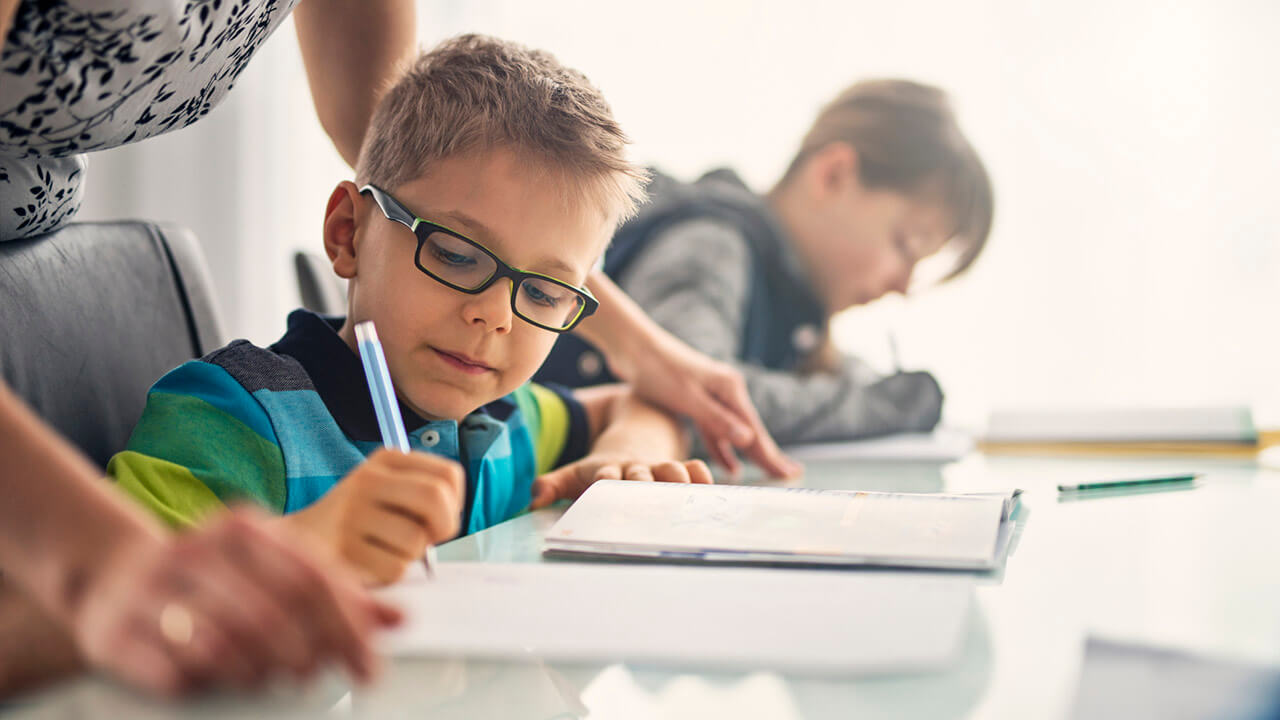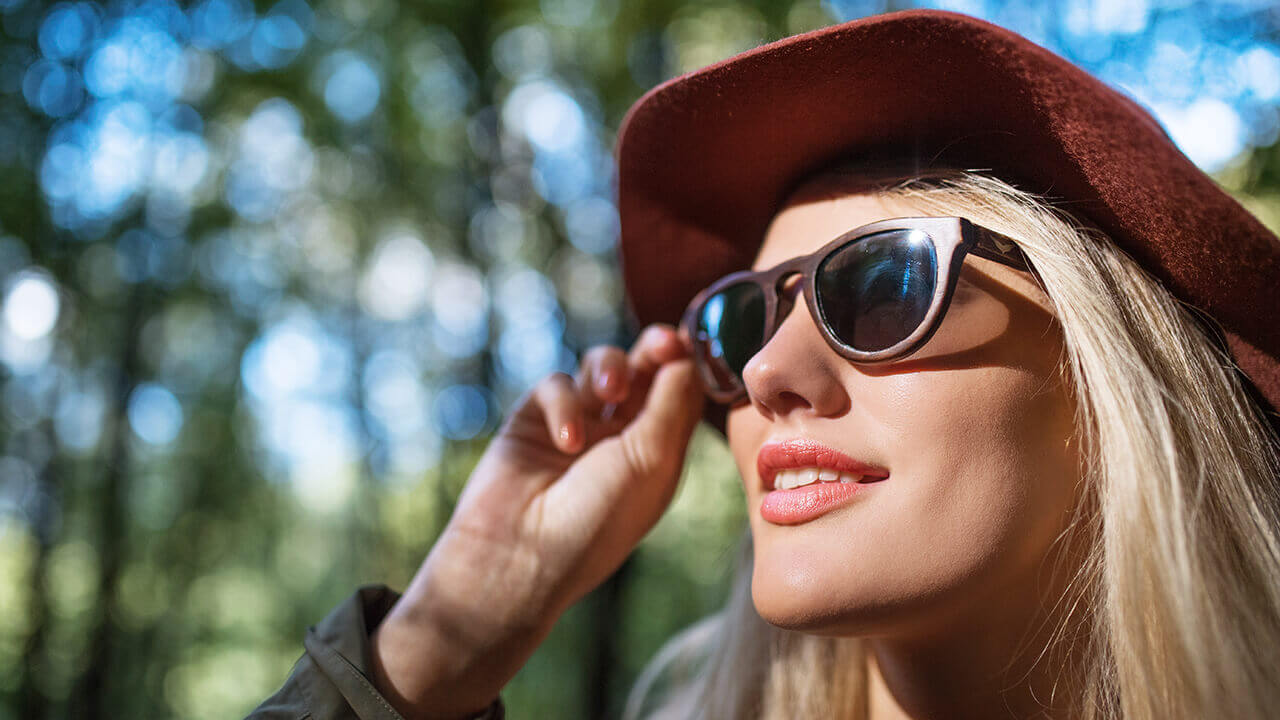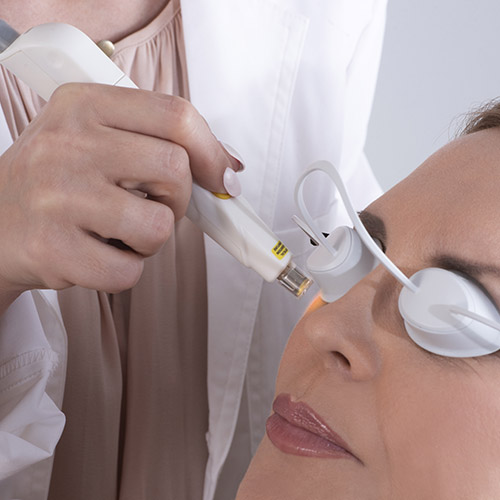

We all know that children need to go to the dentist every six months and to the pediatrician yearly for a well-child visit; but did you know that kids should also have a yearly eye exam? You may be wondering if this is really necessary. The answer is yes. A quick check-in with your child will show just how much good sight means for good learning. From smart boards to tablets, laptops and beyond, our kids’ visual system is in demand all day. Every parent wants to give their child the best chance to learn and develop, but can you remember when your child’s last eye exam was? If your answer is more than a year ago, it’s time to schedule an exam.
Children often will not voice concern if they can’t see because, for many, this is how their vision has always been and they have nothing to compare it to. Here are some behaviors that suggest your child may need glasses.
Did you know that approximately 25 percent of school-aged children have vision problems? If the child is nearsighted, farsighted or has astigmatism, wearing corrective lenses may help in the classroom. For instance, reading comprehension is very difficult if a child is moderately or severely farsighted. Sometimes, a simple pair of reading glasses is all it takes to see your child’s reading skills improve. Glasses, along with taking breaks to allow the eyes to rest, can also help ease fatigue with computer use.
If it is determined that your child needs corrective lenses, the eye doctor will let you and your child know when to wear the glasses. Contact lenses can also be worn and are appealing for children who play sports. Here are a few things to keep in mind if you child needs glasses or contact lenses:
Eye exams for children are important and help to detect any issues early. For the best success, make your child’s appointment when your child is most awake and plan to be at the office for about one hour. Lastly, don’t stress. Even if your child is not being cooperative, there have so many ways to get the information needed to determine whether your child needs glasses. Find a Prevea optometrist and to schedule online.
Children often will not voice concern if they can’t see because, for many, this is how their vision has always been and they have nothing to compare it to. Here are some behaviors that suggest your child may need glasses.
- Avoiding near activities: If your child avoids near activities or has a short attention span with reading, coloring or games, this may be a sign that your child needs glasses. If your child’s focusing system is not working optimally, it will cause eye strain or blurry vision.
- Squinting: Does your child squint to read or watch TV? This may be a sign your child needs an eye exam and possibly glasses. When you squint you change the shape of the eye ever so slightly, which can improve clarity of vision.
- Poor hand-eye coordination: If your child struggles with hand-eye coordination, this may be due to needing a glasses prescription or due to your child’s eyes not working well together. It can also be attributed to poor depth perception. Your child’s eye care provider can check all of this at their annual eye exam.
- Poor reading comprehension: Although there may be multiple factors contributing to your child’s poor reading comprehension, if your child is not able to clearly see, they are unable to process the information effectively.
- Losing their place when reading: If your child struggles to follow the line across the page of a book, this may be a sign that their ocular motility system is not working optimally and can be addressed with glasses or vision therapy.
- Complaining of sore eyes: if your child takes the step of complaining about their vision, it could mean several things. The rise of screens in early education puts additional levels of stress on young eyes.
Did you know that approximately 25 percent of school-aged children have vision problems? If the child is nearsighted, farsighted or has astigmatism, wearing corrective lenses may help in the classroom. For instance, reading comprehension is very difficult if a child is moderately or severely farsighted. Sometimes, a simple pair of reading glasses is all it takes to see your child’s reading skills improve. Glasses, along with taking breaks to allow the eyes to rest, can also help ease fatigue with computer use.
Four reasons why it is so important for your little one to have an eye exam before they start school this year:
- Vision and learning go hand in hand. Children will develop visual abilities during preschool and elementary school that they will use throughout their school years and into adulthood. Clear and single vision is essential for your child’s success both in school and during extracurricular activities such as sports. It is estimated that 80 percent of what a child learns is through their vision. Bringing your child in for a complete eye exam will ensure they are ready to be successful at the start of each school year.
- Screening does not take the place of an eye exam. There is a common misconception that a vision screening is the same as a comprehensive eye exam. A screening at a pediatrician’s office or at school is a quick way to indicate whether there is a need for further evaluation. A screening often only assesses one or two areas of vision and cannot diagnose eye or vision problems. During a complete eye exam, not only will your child’s vision be tested, but the doctor will also look at your child’s ability to focus their eyes properly and the teaming skills of their eyes. In addition your child’s color vision and eye health will be assessed.
- Younger children often will not voice concern about their vision. Children do not know their vision is poor because, for many, this is how their vision has always been and they have nothing to compare it to. Until a child gets glasses for the first time, they do not know what they have been missing.
- Treatment of eye conditions early is crucial for the best vision. The term “lazy eye” is common. Lazy eye refers to amblyopia, which is the lack of clear vision in one eye. From birth until about the age of seven or eight, the eye and brain form connections for vision and visual processing. Amblyopia will prevent these connections from being made. Your eye doctor will suggest treatment options for your child, to allow their visual system to develop to its best potential.
What to expect during an eye exam:
During an eye exam, your child’s vision will be tested, a refraction will be done to determine if glasses are needed, and the tracking and alignment of his or her eyes will be checked. Pupil dilation is also done, which can help uncover certain refractive errors. This process allows the eye doctor to get a careful look at the retina to ensure your child's eyes are healthy.If it is determined that your child needs corrective lenses, the eye doctor will let you and your child know when to wear the glasses. Contact lenses can also be worn and are appealing for children who play sports. Here are a few things to keep in mind if you child needs glasses or contact lenses:
- It is very easy to misplace glasses among all that a child has going on. A simple rule to keep in mind: on your face or in your case.
- Remind your child that his or her glasses are custom made and not for a friend or sibling - no matter how cute they may look. If they can see better with your child’s glasses, an eye exam is recommended.
- Make sure your child gets in the routine of washing his or her hands before handling contact lenses. This will help keep the contact lenses clean.
- Contact lenses should be comfortable to wear, but that is not an excuse to forget to take them out before bed.
Eye exams for children are important and help to detect any issues early. For the best success, make your child’s appointment when your child is most awake and plan to be at the office for about one hour. Lastly, don’t stress. Even if your child is not being cooperative, there have so many ways to get the information needed to determine whether your child needs glasses. Find a Prevea optometrist and to schedule online.

.jpg?width=500&height=500&ext=.jpg)

